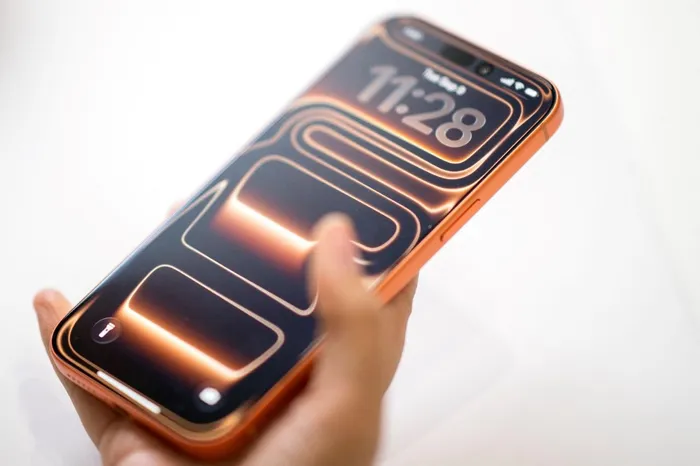iPhone 17: Is Apple losing its innovative edge like Nokia?

The Apple iPhone 17 Pro is displayed during Apple's "Awe-Dropping" event at the Steve Jobs Theater on the Apple Park campus in Cupertino, California, on September 9, 2025.
Image: Nic Coury/AFP
We’ve had enough time to reflect about the latest products from Apple. It’s interesting to note that the markets have reacted unapprovingly after the launch.
After the iPhone 17 launch, Apple shares fell about 1.5% on launch day, then dropped another 3.23% the following day. The share price on that next day closed around $226.79. Combined, that decline erased roughly $112 - $113 billion from Apple’s market value.
Apple unveiled a new iPhone that is thinner and smaller than previous models. The titanium-encased smartphone is a third less thick than previous models but has fewer cameras and less battery life than its predecessors. Consumer reaction was more revealing. Many still feel there’s less innovation currently at Apple. Some even feel that Apple is starting to look like the Nokia of yesteryears.
This comparison stems from the idea that a hugely successful company could become too slow to innovate and fail to recognise a paradigm shift in the industry.
Critics argue that Apple has lost its "Think Different" mentality and is now focused on incremental updates rather than game-changing innovations. Nokia was also slow to react to the shift from feature phones to smartphones. Apple's proprietary ecosystem has been a major strength, creating strong customer loyalty. However, some argue that this approach could become a weakness if it isolates the company from an increasingly interconnected and cross-platform future, particularly with the rise of new technologies like AI.
For years, the iPhone has been Apple's primary revenue driver, much like Nokia's mobile phones in its heyday. This has caused concern among investors as iPhone sales growth has slowed, leaving Apple vulnerable to market shifts. It’s important to note, however, that there are differences.
Unlike Nokia, which was almost entirely dependent on its mobile phone business, Apple has a vast and diversified ecosystem of products and services. This includes services: Apple Music, iCloud, the App Store, and Apple Pay are significant and growing revenue streams. A robust lineup of Macs, iPads, and Apple Watches. Peripherals: High-margin products like AirPods that further lock users into the ecosystem.
Apple has an extremely loyal customer base, which helps insulate the company from short-term issues and allows it to maintain high-profit margins. When the iPhone threatened the iPod, Apple released it anyway. The company has a history of identifying disruptive trends and is not afraid to replace its own products with better ones. While its entry into AI may seem slow compared to competitors, Apple is actively working on incorporating it into its products. Unlike Nokia, which was hesitant to adopt a new OS like Android, Apple has repeatedly shown an ability to adapt. Lastly, while Apple faces challenges with market saturation and intense competition, its diversified business model and ability to adapt make it fundamentally different and more stable than Nokia was in its final years as a mobile phone giant.
Having said that, I also think Apple needs to work towards developing its own eyewear or wearable product to enable ease of AI adoption. In addition to a wearable, an Apple humanoid robot would reinstate the company's position as an innovation leader. In my opinion, I think such a level of innovation would require a different type of a leader. Tim Cook has delivered enough value. The future of Apple is dependent on major innovation, however, the company is not yet at a point that can described as a Nokia moment.

Wesley Diphoko is a Technology Analyst and Editor-in-Chief of Fast Company (South Africa) magazine.
Image: Supplied
Wesley Diphoko is a Technology Analyst and the Editor-In-Chief of FastCompany (SA) magazine.
*** The views expressed here do not necessarily represent those of Independent Media or IOL.
BUSINESS REPORT